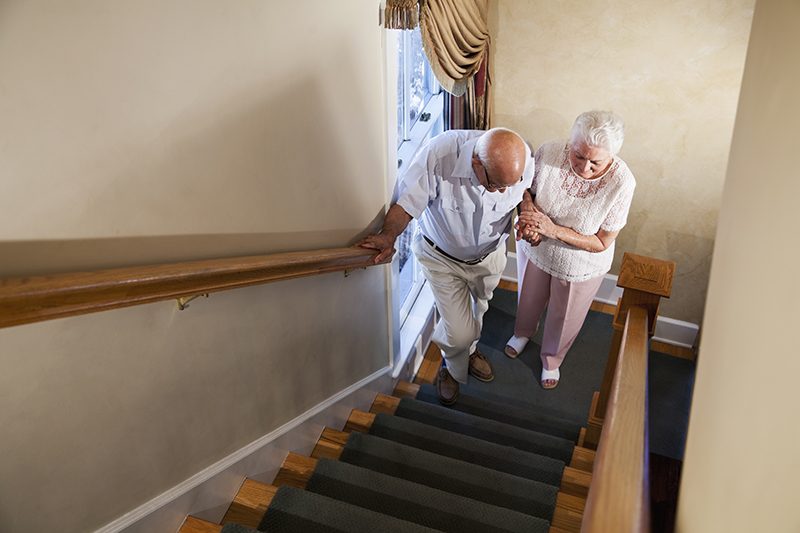Many people think that the most serious risk for traumatic injuries comes from car crashes. But in reality, the most common traumatic injury happens from falls, and they can occur right inside your house.
About 36 million falls happen to older adults each year, according to the Centers for Disease Control and Prevention. This results in 32,000 deaths. “About 3 million older adults nationwide receive Emergency Room treatment for fall injuries each year,” says trauma surgeon David Scaff, DO, with the Level II Adult Trauma Center at Grand View Health.
Roughly one in every five falls causes an injury, including everything from broken bones to head trauma.
The trauma team at Grand View Health wants to help you prevent injuries and falls inside your home. Use this room-by-room guide to keep you and your family safe:
Kitchen
- Keep frequently used items within arm’s reach or on lower shelves.
- Only use sturdy step stool. Stools with a grab bar for support are best. Do not use a chair.
Bathrooms
- Use non-slip rubber mats or self-stick strips on the tub or shower floor.
- Avoid throw rugs unless secured.
- Install grab bars that mount to the wall with screws (not suction) near or inside the tub or shower and next to the toilet.
- Have a handy alert method available, such as a whistle, alert bell or phone.
- Use motion-activated lights.
Bedrooms
- Make the light near your bed easy to reach.
- Keep a flashlight nearby, especially in the event of a power loss.
- Have landlines or a well-charged phone by your bedside.
- Step carefully when getting in and out of bed.
- Use assistive bed functions when getting out of bed if you have them.
Stairs and steps
- Keep stairs clear of objects.
- Fix loose or uneven steps.
- Use non-slip rubber treads on hard surface flooring.
- Install appropriate lighting and handrails on both sides.
Floors
- Always have a clear path. Keep shoes and other loose items off the floor.
- Secure cords and wires, such as from your phone, lamp or TV.
- Throw away those throw rugs! If you have them, fasten them to the floor to prevent tripping.
A few other smart fall prevention tips:
- Know your medications. Talk with your doctor about any medications that make you lightheaded or dizzy.
- Check your eyesight and hearing once a year.
- Wear proper footwear. Make sure your shoes are in good repair. Don’t wear slip-on shoes or slippers.
- Get your exercise.Choose a routine that combines balance, walking and flexibility, Be sure to talk with your healthcare provider before starting any new exercise program.
Know what to do in the event of a fall
- Stay calm and remain still on the floor. Assess whether or not you are injured.
- Roll onto your side slowly and move to your hands and knees if you’re able to stand.
- Slowly move to a sturdy chair if you’re able to do so.
- If you are injured, don’t try to get up! Ask for help or call 911.
- Speak with your provider or seek medical attention for injuries.
Learn more about the Level II Adult Trauma Center at Grand View Health.

